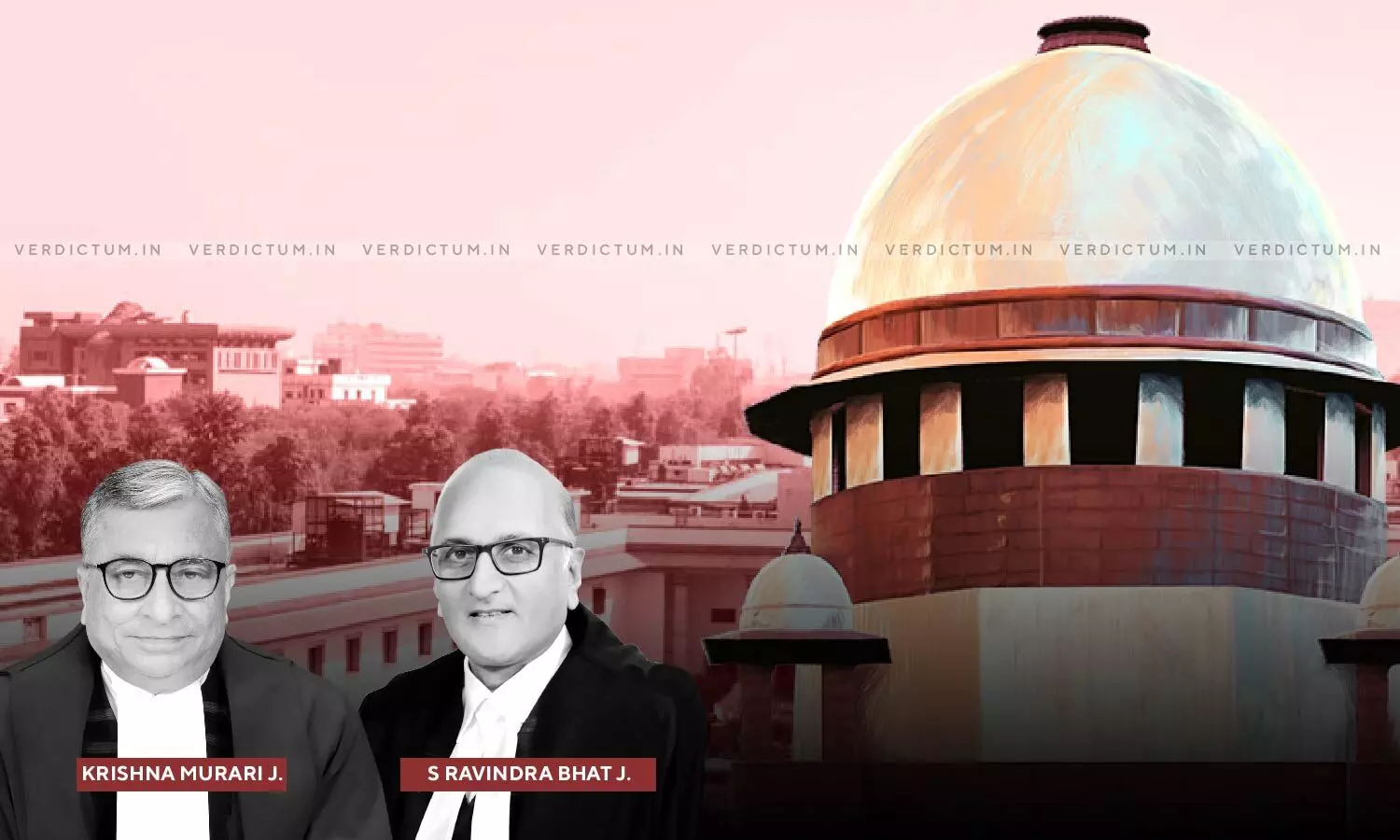
Strict Rules Of Evidence As Applicable In A Criminal Trial Are Not Applicable In Motor Accident Compensation Cases- SC Reiterates
 |
|A Supreme Court Bench of Justice Krishna Murari and Justice S. Ravindra Bhat has observed that "strict rules of evidence as applicable in a criminal trial, are not applicable in motor accident compensation cases".
Counsel Anuj Bhandari appeared for the Appellants, while Counsel Varinder Kumar Sharma and Counsel Nidhi appeared for the Respondent.
In this case, the heirs and dependents of the deceased approached the Supreme Court against orders passed by the High Court of Rajasthan, by which the High Court had reduced the compensation awarded by the Motor Accidents Claims Tribunal to the Claimants. The High Court had refused to consider the salary certificate and pay slip of the deceased on the ground that the individual who issued the documents was not examined before the Tribunal.
The Supreme Court disagreed with the view taken by the High Court and said that "It is well settled that Motor Vehicles Act, 1988 is a beneficial piece of legislation and as such, while dealing with compensation cases, once the actual occurrence of the accident has been established, the Tribunal's role would be to award just and fair compensation. As held by this Court in Sunita (Supra) and Kusum Lata (Supra), strict rules of evidence as applicable in a criminal trial, are not applicable in motor accident compensation cases". As an extension of the same, the Court made the observation that "The said documents are conclusive proof of the income of the deceased and were also corroborated by the statements of the deceased's wife (Appellant No. 1 herein) and his co-workers. As such, the High Court was not justified in assessing the income of the deceased at Rs.4,836/- per month on the basis of minimum wages fixed by the State at the relevant time. Resultantly, we affirm the findings of the Learned Tribunal so far as they relate to assessing the deceased's income at Rs.11,225/- per month on the basis of aforementioned two documents. Annual income of the deceased, therefore, amounts to, Rs.11,225/- x 12 = Rs.1,34,700/-."
The Court found that the documents were conclusive proof of the income and were also corroborated by the statements given by the deceased's wife and his co-workers.
Hence, the Supreme Court allowed the appeal and awarded a compensation of Rs. 20,98,655/- to the claimants.
Cause Title: Rajwati @ Rajjo v. United India Insurance Company Limited
Click here to read/download the Judgment